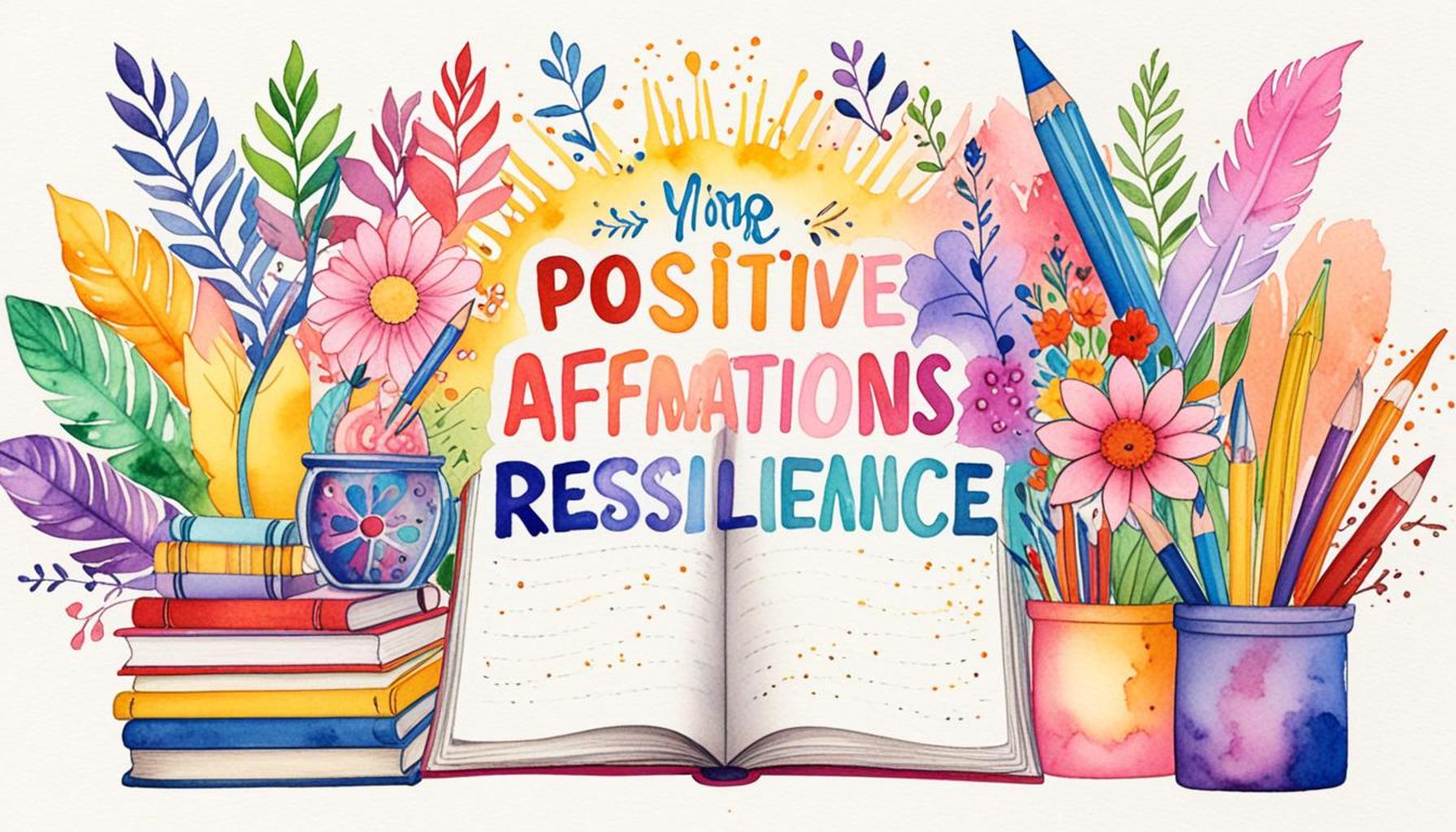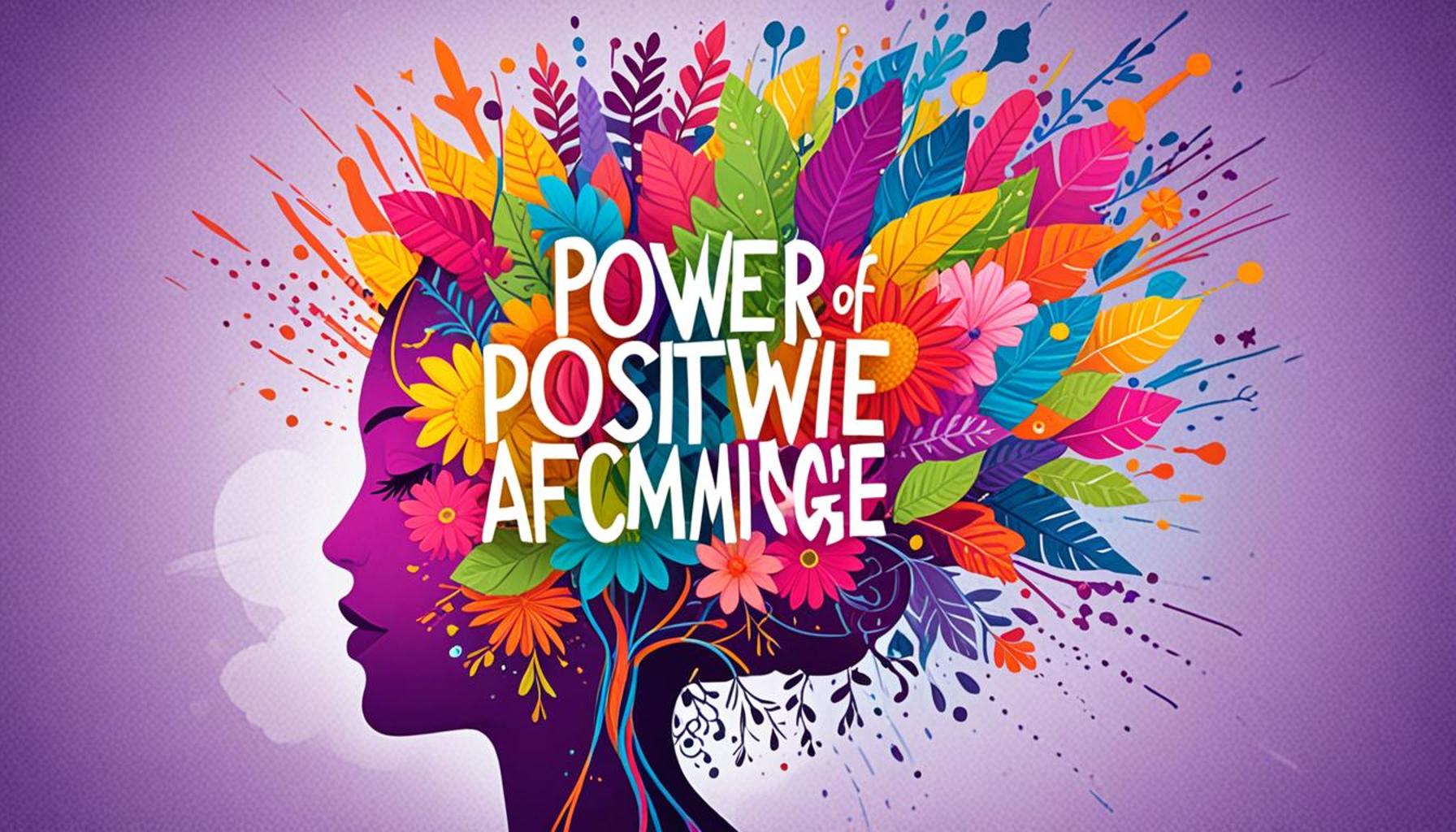Positive Affirmations as a Tool to Overcome Self-Criticism and Fear of Failure

Embracing a New Mindset
Life can often feel like an uphill battle, where expectations weigh heavily and self-doubt lurks at every corner. Many individuals, particularly in vibrant societies like Nigeria, grapple with self-criticism and an overwhelming fear of failure. These pervasive emotions can serve as formidable obstacles, hindering personal and professional growth. Yet, there is a transformative tool that can empower you to break free: positive affirmations.
The Power of Positive Affirmations
Positive affirmations are simple yet profound statements crafted to replace negativity with empowering thoughts. By consciously choosing to affirm your worth and capabilities, you can begin to reshape your mindset. The benefits of incorporating positive affirmations into your daily routine are numerous:
- Increased Self-Belief: When you regularly affirm your strengths, you cultivate a deeper sense of confidence. For instance, stating “I am capable and deserving of success” can ignite a belief in your abilities that propels you forward.
- Reduced Negative Self-Talk: By selectively using positive language, you gradually diminish the grip of self-criticism. For example, replacing “I always mess things up” with “I learn and grow from my experiences” encourages a healthier self-dialogue.
- Enhanced Resilience: Regular affirmation fosters mental strength, equipping you to face challenges with a renewed perspective. During times of adversity, such as navigating the competitive job market, affirming “I can overcome obstacles” serves as a powerful reminder of your inner resilience.
In Nigeria, societal pressures can amplify feelings of inadequacy and fear of failure. Many young professionals, for instance, may feel overwhelmed by family expectations or workplace competition, leading to anxiety. However, integrating positive affirmations into daily practices can help dismantle the chains of self-doubt. Whether it is a morning ritual or a midday reminder on your phone, these affirmations can serve as guiding lights through the fog of uncertainty.
Taking the First Step
Recognizing the potential impact of positive affirmations is merely the first step in a meaningful journey. To effectively harness their power, start by identifying specific areas of your life where doubts frequently arise. Write down personalized affirmations that resonate with your experiences and aspirations.
For example, if you struggle with public speaking, you might create affirmations like “I am a confident communicator who captivates my audience.” Repeating this mantra can gradually build the confidence needed to excel in presentations or meetings.

As you delve deeper into the world of positive affirmations, you’ll begin to notice subtle shifts in your mindset. It may be beneficial to journal about your experiences, allowing you to track your progress and recognize how far you’ve come. Ultimately, this transformative practice fosters personal growth and equips you to navigate life’s challenges with greater ease and confidence.
SEE ALSO: Click here to read another article
The Science Behind Positive Affirmations
At the heart of positive affirmations is the fascinating science of neuroplasticity—the brain’s incredible ability to reorganize and adapt itself by forming new neural connections. This capability is not just a concept reserved for scientists but a practical tool anyone can leverage for personal development. When you consistently practice positive affirmations, you effectively train your brain to prioritize pathways that promote self-worth and optimism over those fraught with negativity. This transformative process not only enhances self-belief but also helps to diminish the crippling effects of self-criticism, creating a more supportive internal dialogue.
The impact of cultural and societal pressures cannot be overlooked, particularly in Nigeria, where success is frequently measured by academic performance and career advancements. Many individuals, especially youth, feel encumbered by these expectations, igniting a fear of failure that is all-consuming. This pervasive anxiety can spiral into a relentless pursuit of perfection, often leading to a damaging cycle of negative self-talk. Yet, this cycle can be interrupted through the empowering practice of positive affirmations.
How Positive Affirmations Transform Mindsets
Positive affirmations have the potential to create profound changes in one’s mindset. Here are some key insights into their benefits:
- Shifting Perspectives: Affirmations can lead to a fundamental shift in how you view yourself. For example, instead of succumbing to thoughts like, “I am not good enough,” stating, “I embrace my imperfections and learn from my experiences,” fosters a more compassionate view of your personal journey. This mindset encourages growth rather than stagnation.
- Creating a Supportive Environment: Another powerful aspect of affirmations is their ability to foster a culture of encouragement when shared with others. In the context of Nigerian workplaces, known for their competitive nature, cultivating positive reinforcement among colleagues can lead to a more cohesive team atmosphere. Offering support through shared affirmations can transform an environment teeming with competition into one of mutual respect and motivation.
- Encouraging Action: Verbalizing affirmations is just the beginning. They must also inspire concrete actions. For instance, reminding yourself, “I take bold steps toward my dreams,” not only reinforces your courage but also propels you toward seizing opportunities that align with your aspirations.
In a society where skepticism often overshadows ambition, positive affirmations serve as a powerful antidote to the fear of failure. By reshaping the narrative surrounding personal worth and potential, individuals are better equipped to cultivate resilience.
Young professionals in Nigeria face unique challenges—from navigating competitive job markets to venturing into entrepreneurship. A mindset that embraces possibility rather than limitation is essential. By recognizing how positive affirmations can positively alter thought patterns, a broader acceptance of this practice can take root. As individuals begin to experience these benefits firsthand, they contribute to building communities enriched with self-acceptance and empowerment.
Breaking the bonds of self-doubt can yield substantial personal and collective advantages. Encouraging the integration of positive affirmations into daily routines may lead to sweeping changes in how individuals perceive their capabilities, resulting in a ripple effect of growth and fulfillment across various aspects of life.
| Advantage | Description |
|---|---|
| Enhanced Self-Esteem | Positive affirmations boost self-worth, encouraging individuals to embrace their strengths rather than focus on flaws. |
| Resilience Building | They cultivate a stronger mindset to confront challenges and pave the way for success, reducing the fear of failure. |
Exploring the transformative nature of positive affirmations can significantly empower individuals battling self-criticism and fear of failure. This tool encourages a shift in mindset, prompting individuals to replace negative self-talk with affirming statements that promote mental well-being. When one practices such affirmations regularly, the benefits manifest in bolstered self-esteem and resilience. Additionally, by repeatedly verbalizing or reflecting on these empowering statements, individuals become better equipped to navigate personal and professional challenges, thereby diminishing the apprehension tied to potential failures. Notably, these affirmations can include phrases like “I am capable of achieving my goals” or “I deserve success and happiness“, reinforcing a positive self-image over time.Ultimately, the integration of positive affirmations into daily routines is a powerful strategy that not only fosters a healthier inner dialogue but also enhances overall life satisfaction. As more individuals seek methods to combat self-doubt, the significance of positive affirmations as a transformative practice cannot be overlooked.
SEE ALSO: Click here to read another article
The Role of Positive Affirmations in Building Resilience
While the power of positive affirmations is often demonstrated in individual mental shifts, their role in cultivating resilience cannot be overlooked. Resilience, the capacity to recover quickly from difficulties, is paramount in overcoming self-criticism and conquering fear of failure. In the Nigerian context, where societal expectations can be especially high, embracing resilience becomes a vital skill for both students and professionals alike.
Empowering Future Generations
The integration of positive affirmations into educational settings can have a profound influence on young minds. Schools across Nigeria can implement programs that encourage students to practice affirmations related to their self-worth and academic capabilities. Studies show that students who engage with positive affirmations perform better academically and are more likely to participate actively in class discussions. For instance, a student declaring, “I am capable of achieving my academic goals,” can alleviate anxiety during examinations and foster a belief in their potential to succeed.
This practice doesn’t just help students; it also extends to teachers. Educators who adopt affirmations such as, “I inspire my students every day,” can create a more positive learning environment, thereby validating their roles as catalysts for change. It’s about creating a vaccine against self-criticism and fear of failure, which often plague both students and teachers in high-pressure settings.
Affirmations in Professional Settings
For young professionals entering a challenging job market, the fear of failure can be overwhelming. Positive affirmations can serve as a mental framework that transforms fear into motivation. Instead of succumbing to thoughts like, “I might not get hired,” individuals can reframe this fear by affirming, “I have unique skills that make me a valuable candidate.” This subtle shift from doubt to affirmation cultivates a proactive mindset.
Moreover, organizations in Nigeria can benefit from embedding positive affirmations into their corporate culture. Companies that foster an environment focusing on employee well-being, paired with practices like shared affirmations during team meetings, can significantly enhance job satisfaction and collaboration. Employees are more likely to thrive when constantly reminded of their abilities and contributions.
Evidence of Effectiveness
Recent research highlights that consistent use of positive affirmations can significantly decrease stress levels and improve overall mental health. For example, a study conducted by esteemed psychologists has shown that individuals who routinely practiced affirmations reported lower levels of anxiety and a greater sense of control over their lives. This suggests that affirmations not only influence how we perceive ourselves but can physically alter stress responses in the brain.
In Nigeria, where the weight of societal norms often poses challenges to personal growth, these findings underscore the necessity of recognizing and embracing self-affirming practices. Applying techniques such as writing affirmations and reciting them daily can empower individuals to break free from the shackles of self-doubt and fear.
Furthermore, the rise of social media can amplify the reach of positive affirmations. Influential figures and motivational speakers can use their platforms to spread messages of empowerment, encouraging community members to embrace their unique journeys. This collective reinforcement helps in fostering a national culture of resilience, thereby combating the pervasive nature of self-criticism.
The integration of positive affirmations into everyday life—whether through education, workplace initiatives, or social media campaigns—holds the promise of transforming perspectives in the quest to overcome self-doubt and fear of failure. As individuals and communities begin to embrace this transformative tool, they pave the way toward a more confident and resilient society.
RECOMMENDED: Check out this similar article
Conclusion: Embracing a Culture of Positive Affirmations
In a world rife with challenges and societal pressures, the ability to harness positive affirmations emerges as a pivotal strategy for overcoming self-criticism and fear of failure. This powerful tool not only fosters resilience among individuals but also has the potential to transform educational and professional environments, particularly in Nigeria, where the weight of expectations can be daunting. By incorporating affirmative practices in schools, workplaces, and through social media, we cultivate a culture that nurtures self-worth, motivation, and collaboration.
The evidence supporting the effectiveness of positive affirmations spans various studies, underscoring their role in reducing anxiety and fostering a sense of control over one’s life. As students begin to recognize their potential through affirmations, and professionals reframe their narratives to favor self-belief, the collective shift can indeed reshape communities. Influential figures and educators have an invaluable opportunity to lead this charge, promoting a mindset that embraces vulnerability and courage in the face of adversity.
Ultimately, the integration of positive affirmations into everyday practices encourages individuals to challenge negative self-talk and embrace their unique abilities. By prioritizing this transformative practice, we can pave the way for a more resilient society, capable of navigating the complexities of life with confidence and grace. As Nigerians continue to amplify their voices and stories, the ripple effect of positive affirmations can create a thriving environment where self-criticism becomes a thing of the past, making way for a future rich in potential and success.


